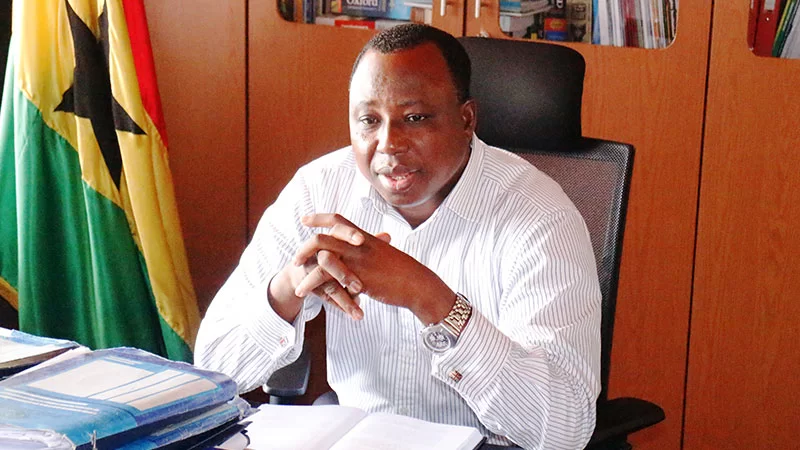The controversy over the use of cultural values as the sole basis for enacting laws, particularly in the context of anti-LGBTQ+ legislation in Ghana, has been sparked by the Chairman of the Commission on Human Rights and Administrative Justice (CHRAJ), Joseph Akanjolenur Whittal.
The Commission on Human Rights and Administrative Justice (CHRAJ) Boss expressed concerns about the motivations and potential repercussions of hastily passing such legislation, warning that prioritizing traditional values over global realities could lead to negative consequences.
“This bill is not a law, so it cannot be used against anybody. There are still processes to make it a law. That is why I am raising the challenge to the President to consider whether he shouldn’t exercise his right of rejection based on constitutionality aired against human rights. If it makes it through him, and if he also assents, I know there is a bunch of people who are ready to challenge the constitutionality of this bill before the Supreme Court.”
Joseph Akanjolenur Whittal, CHRAJ Boss
He appealed to the President not to sign the bill into law, citing its potential impact on human rights. Mr. Whittal’s stance has been met with disagreement from the lead sponsor of the bill, Mr. Sam George, who argues that Mr. Whittal’s opposition compromises his impartiality in handling LGBTQ+ cases.
This disagreement highlights the complex interplay between cultural values, human rights, and legislative decisions in Ghana.
When Law and Morality Contradict
The chairman of the Commission on Human Rights and Administrative Justice (CHRAJ) made a candid statement emphasizing the need to respect universal human rights principles and asserted that laws should not be formulated solely based on cultural values.
“While cultural values are important and should be respected, they should not be used as a justification for discriminating against any group of people,”
Joseph Akanjolenur Whittal, CHRAJ Boss
In Ghana, conservative cultural and religious views frequently shape public policy, including laws on gender identity and sexuality. The Commission on Human Rights and Administrative Justice (CHRAJ) chairman’s comments contradict this prevalent narrative, argued.
Human rights advocates push for greater recognition and protection of LGBTQ+ rights, while proponents of traditional values advocate for strict measures to criminalize LGBTQ+ activities. The issue of LGBTQ+ rights has become increasingly divisive.
Human rights principles such as equality, non-discrimination, and freedom of expression are allegedly violated by anti-LGBTQ+ laws, according to the Commission on Human Rights and Administrative Justice (CHRAJ) Boss.
According to the Chairman of the Commission on Human Rights and Administrative Justice (CHRAJ), Joseph Akanjolenur Whittal, criminalizing LGBTQ+ people merely serves to exacerbate social tensions and impede efforts to create a more inclusive society by fostering stigma, discrimination, and violence against disenfranchised communities.
The Commission on Human Rights and Administrative Justice (CHRAJ) chairman’s remarks have sparked new discussion about how human rights, cultural values, and the rule of law interact in Ghanaian society.
The Commission on Human Rights and Administrative Justice (CHRAJ) Boss emphasized that prioritizing traditional values over global realities in legislation can lead to infringement on human rights, social and economic consequences, and cultural imperialism. It’s essential to balance cultural values with global standards to ensure the rights, health, and well-being of all individuals within a society.
The role of organizations like the Commission on Human Rights and Administrative Justice (CHRAJ) in defending human rights and advancing equality for all citizens is still vital as stakeholders struggle with these complicated issues.
Government officials and religious leaders have reaffirmed their commitment to upholding Ghanaian cultural values and traditional norms in response to the remarks made by the Commission on Human Rights and Administrative Justice (CHRAJ) chairman. They have also acknowledged the importance of respecting human rights and dignity.
The conversation that is still going on emphasizes the importance of positive interaction and teamwork to arrive at fair solutions that honor both universal human rights principles and cultural heritage.
READ ALSO: Positive Talks Between Japan and Ghana Signaled Progress for Volivo Bridge























